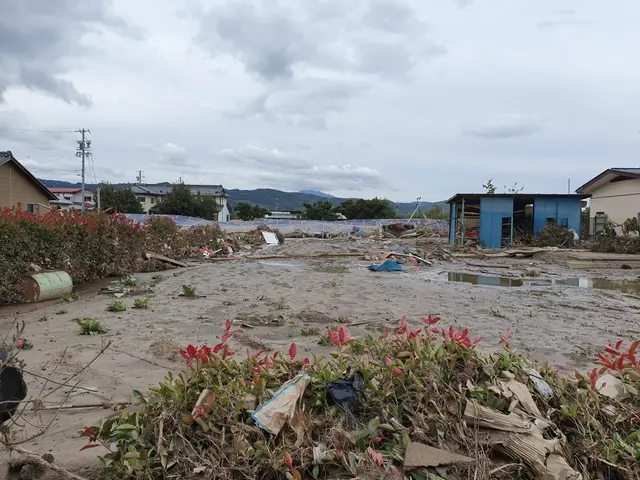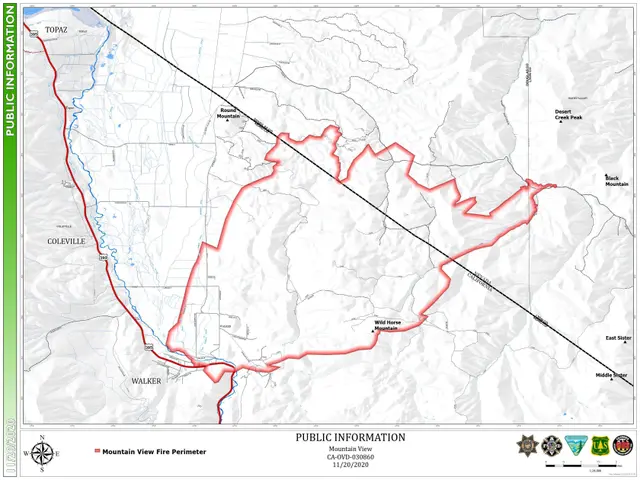Let's Dive into the High Seas: UN Ocean Conference on Plastic and Deep Sea
Summary of UN Ocean Conference: Final Statements on Plastic Pollution and Deep-Sea Issues - Extension of the agreement's validity period proposed for an additional three years by the Commission.
Whew, had a whale of a time at the UN Ocean Conference in sunny Nice, France! Lasting five days, this ocean-tastic event brought together representatives from 170 nations to discuss the preservation of our precious oceans. And boy, did we make some splashy progress!
High Seas Protection
With about 60-70% of our oceans being high seas, it's high time we had some regulations among those international waters. Enter the High Seas Treaty, embraced by the United Nations two years ago. This treaty's goal? To bring law and order to the high seas by creating large protected areas.
So, how's the treaty coming along? Pretty darn well! In Nice, over a dozen countries ratified the treaty. We're almost there – just a few more to go before it becomes a reality, according to French estimates. OceanCare is pretty stoked about this "encouraging progress." Greenpeace is urging Germany to get on board and ratify the treaty soon.
Fight Against Plastic Pollution
It's time to crack down on plastic pollution. Starting August, negotiations on a treaty to curb ocean pollution are happening in Geneva. In Nice, 95 countries united to demand restrictions on primary plastic production and mandatory reporting on production, import, and export of these substances. They also aim to include a commitment to phase out the most problematic plastic products and chemicals in the treaty.
"This is a fantastic first step – the bare minimum, if you will, to effectively combat plastic pollution," claimed Florian Titze from WWF Germany. To reach an agreement, countries should be willing to shed their 'hold-out' tactics and forge ahead by majority vote, if some nations keep blocking progress in Geneva.
Deep-Sea Mining
Plans to extract valuable minerals from the deep sea are raising eyebrows. Many countries are concerned about the potential impact on deep-sea ecosystems. Germany, along with 36 other nations, is pushing for a precautionary pause on deep-sea mining, meaning no such projects will move forward at this time.
A wildcard's entered the game: the USA, under the leadership of President Donald Trump, is considering deep-sea mining even in international waters. At the conference in Nice, 24 countries, including Germany, strongly voiced their opposition to such ventures. They argue that deep-sea resources outside national waters are the common heritage of humankind and should be managed responsibly by the International Seabed Authority (ISA).
"Any potential deep-sea mining outside the international legal framework would be illegal," declared coalition partners. The ISA, with around 170 member states, including the EU and key nations, commonly govern deep-sea resources. The ISA plans to discuss a global framework for deep-sea mining again this summer. Greenpeace encourages countries like Germany to collaborate with others and halt the exploitation of the deep sea.
Bonus Round
- German-French Cooperation on Unexploded Munitions in the Baltic and North Seas: Germany teamed up with France to find and dispose of unexploded munitions in the Baltic and North Seas.
- Noise Pollution in the Ocean: A coalition of nations aims to intensify efforts in combating noise pollution in the ocean.
- Marine Education: UNESCO is pushing for a stronger focus on marine education to foster more ocean-conscious generations.
Unfortunately, despite progress on these topics, the world is still far from achieving crucial marine conservation goals by 2030, as warned by OceanCare. Let's keep swimming to ensure a brighter future for our seas!
The next UN Ocean Conference will take place in 2028, hosted by South Korea and Chile. Costa Rica served as a co-host at this year's event. The UN Ocean Conference has been held twice before: in 2017 in New York and in 2022 in Lisbon.
[1] https://www.ishes.org/ratifications/high-seas-treaty[2] https://www.un.org/sustainabledevelopment/ocean[3] https://www.globaloceanacquisition.org/wp-content/uploads/2022/01/Report_On_the_High_Seas_Treaty_39.pdf[4] https://www.maritime-executive.com/article/high-seas-treaty-ratified-by-the-eu-and-six-member-states[5] https://www.unesco.org/new/en/goal-14/content/high-seas-treaty-upcoming-milestones
- As the High Seas Treaty progresses, countries such as Germany are being urged to ratify the treaty by environmental organizations, to help establish law and order in international waters and protect millions of square kilometers in the high seas.
- In the fight against plastic pollution, environmental-science is crucial for understanding the impact of plastic waste on the environment and for informing policy-and-legislation to restrict primary plastic production and phase out problematic plastic products and chemicals.
- Climate-change and health are directly affected by the health of the environment, particularly the oceans, hence it is essential to take steps for environmental protection, such as implementing stricter regulations on deep-sea mining and reducing plastic pollution, to ensure a sustainable future for both the environment and humanity.








